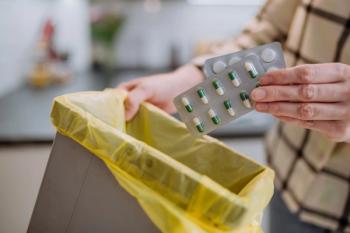
Plant-based vaccine system OK'd by USDA
Indianapolis ? The United States Department of Agriculture (USDA) recently approved Dow AgroSciences' technology to generate vaccines from plants, marking the first such regulatory sanction in the world.
INDIANAPOLIS — The United States Department of Agriculture (USDA) recently approved Dow AgroSciences' technology to generate vaccines from plants, marking the first such regulatory sanction in the world.
That means by decade's end, veterinary medicine's protocols for disease prevention might include West Nile virus and avian influenza vaccines created from plant cells. Canine diabetes and bovine pneumonia also could benefit from the technology, turning vaccines into a $500-million business for Dow AgroSciences by 2020, company officials say.
The advantage relative to traditional vaccines: Highly stable plant proteins are easier to store with less environmental concerns related to shedding, and the system will not grow mammalian viruses in bacteria, says Butch Mercer, Dow AgroSciences global business leader for animal health. In addition, no components of animal origin are used, eliminating contamination concerns related to diseases such as bovine spongiform encephalopathy, says chemist Jeffrey Cuffe, PhD, research and development for Dow AgroSciences.
Considering growth potential for the company's ConcertTM Plant-Cell-Produced System, animal health ranks high on Dow's agenda for business development, officials say.
"We're in the process of building a brand new business platform for our company, which fits very well with our mission of agriculture," Mercer says. "We're driving this technology harder than anyone else has been able to do at this point."
Oral limitations
Early researchers of plant-made vaccines might argue otherwise. While officials with the agriculture arm of Dow Chemical Co. cite the technology as an "innovative milestone," some experts point out uncertainties concerning efficacy, safety and cost-efficiency hurdles of manufacturing of plant-based vaccines.
Closely tied to the technology is Dr. Ronald Schultz, a University of Wisconsin professor and vaccine researcher for 30-plus years. In the late 1990s, Schultz forged new ground on the plant vector scene with plans to create an oral inoculation for parvovirus. The limitation: The product did not induce an immune response when given orally, which ranks as the technology's biggest advantage compared to traditional vaccines, he contends.
"This sounds great on paper," Schultz says, "but I can say my excitement has dwindled over the past eight years, mainly because I don't consider a non-infectious plant-vectored antigen to be much benefit outside its possibilities for oral use. They have the same limitations as killed vaccines."
While Mercer sits mum on future vaccine administration plans, he doesn't rule out oral delivery. "The world of administration of veterinary biologics also will change in the years ahead," he says. "We have an aggressive program looking at alternative delivery systems. It is a science unto itself."
How it works
According to Schultz, the science around plant-based vaccine production starts with retrofitting plants to produce a variety of proteins. These plants then become factories for the production of vaccine antigen, including viral, bacterial and parasitic. The concept profits because plants are cheap to raise and have the ability to produce a large amount of potentially powerful antigen. But the technology also creates a new problem — the possibility for hypersensitivity or allergic reaction to the plant products in the vaccine.
Schultz says that was a major obstacle in his early work, which centered on using whole plants. Yet Dow employs a biocontained manufacturing process that involves engineering plant cells and growing them in vitro. The allergy risk remains, but to a much lesser degree, he contends.
"They're producing a plant cell culture system to make the vaccine antigens," Schultz says. "Clearly it's a step toward cleaning up the whole system. They're working within a cell system that they can control."
Regulatory OK
That technology likely sealed the go-ahead from federal regulators, Schultz adds. USDA will not license nonsterile products, which should relieve veterinarians, says Dr. Kris Hennessy, owner of Hennessy Research Associates LLC, a contract research and development laboratory near Kansas City, Kan.
"All the vets I know are very cautious when it comes to drug safety, but the government is, too," she says. "USDA won't put just anything on the market where safety hasn't been rigorously established. But it's still premature. The safety issue will have to be proven species by species."
Cuffe reiterates the company's intent to produce clean products. "We will not infect animals through contamination; we have every intention in making this a successful business."
Seeking proof
Still, Purdue University researcher Dr. Larry Glickman says as an allergy sufferer, he'd rather receive vaccines made in eggs or animal cells rather than in plants. There are pros and cons to every technology, Glickman says, adding that he'll await clinical trials before weighing in on the safety and efficacy of plant-made vaccines.
"It is one thing to develop a new technology or drug," he says. "It is another thing to show that it works and is safer than existing technologies or drugs."
That's a fair stance, Cuffe says, adding that Dow plans to soon begin back-to-back vaccine trials.
"Everything we've seen on safety and efficacy is very promising with respect to animals," Cuffe says. "Each product we develop will be challenged, and we have confidence we'll get through all these. We think the technology will win out."
Newsletter
From exam room tips to practice management insights, get trusted veterinary news delivered straight to your inbox—subscribe to dvm360.




